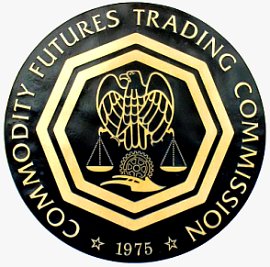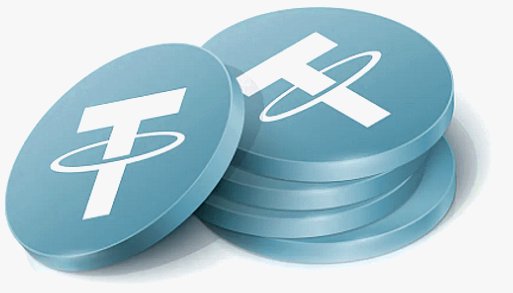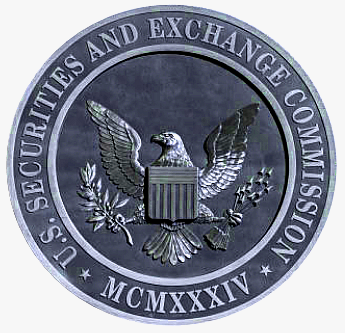Accredited InvestorsAltcoinAnatoli UnitskyAnti-Money Laundering (AML) In CryptoAPIArbitrageArtCoin TokenArticle DirectoryASICAuction Terminology GlossaryBasics of Stock Market InvestingBear MarketBest Crypto Payment Provider In the WorldBitcoinBlockchainBlockchain ConfirmationBlockchain Consensus MechanismBlockchain ForkBlockchain GlossaryBored Ape Yacht ClubBuild a Business That OutperformsBull MarketBuying SkyWay SharesByzantine Fault Tolerance (BFT) ExplainedCasascius CoinCentral Bank Digital Currency (CBDC)Centralized Crypto ExchangeCoinCoinsetCold WalletCollateralCommodity Futures Trading Commission (CFTC)Cross-Chain TechnologyCRUCrypto ExchangeCrypto GlossaryCrypto JokesCrypto Terms to KnowCrypto TickerCryptocurrencyCryptographyCryptojackingCryptounit BlockchainCryptounit GlossaryCryptounit ProgramdApp (Decentralized Application)Dead CoinDecentralized Exchange (DEX)Decentralized Finance (DeFi)Difference Between Bitcoin and EthereumDifferent Ways of Investing MoneyDigital CurrencyDistributed LedgerDo Your Own Research (DYOR)Dollar Cost Averaging (DCA)Dow Jones Industrial Average (DJIA)EncryptionERC-20ERC-721EthereumEvoScentFear Of Missing Out (FOMO)Fear, Uncertainty and Doubt (FUD)Fiat MoneyFNT Fintech CompanyGenesis BlockGlobal Unit PayGlossary of Banking TermsGlossary of Business TermsGlossary of Financial TermsHalvingHODLHot WalletHow Do I Start InvestingHow Rich is Satoshi Nakamoto?How to Create a BlockchainHow to Find Private InvestorsHow to Get Into FintechHow to Program Smart ContractsI Am Thrilled to Be a Part of This Global ProjectInitial Coin Offering (ICO)Initial Public Offering (IPO)Initial Token Offering (ITO)Innovation Basalt TechnologyInnovative Transportation TechnologiesInternational Bank Account Number (IBAN)Investing in Gold Mining StocksInvesting in Gold MiningJagerJoy of Missing Out (JOMO)Know Your Customer (KYC)LedgerLiquidity in CryptocurrencyMaker and Taker Fees in Crypto TradingMarket Capitalization (Market Cap)Meme CoinMetal Credit CardMetaMaskMillenials Now Have Access to Generational WealthMy Best Investment EverNew Digital EvolutionNFT GlossaryOff-Chain TransactionsOn-Chain TransactionsOpen Edition NFTPeer-to-Peer (P2P)Personal Loan GlossaryProbably the Best STO on the MarketProof of Stake (PoS)Real Estate Glossary of TermsReal Estate Investing GlossaryRebase TokenSecurities and Exchange Commission (SEC)Security Token ExchangesSecurity Token Offering (STO)Soulbound Decentralized Identities for Security TokensSoulbound ID Launch by Stobox Proves a SuccessSoulbound TokensStoboxStock Market GlossaryTestimonialsTether Platform and Token (USDT)UnitEx ExchangeUnitsky String TechnologiesUNTBUSDUValidatorWe Started Investing When We Were 25What are Blue Chip NFT?What are Blue Chip Stocks?What are Crypto Assets?What are Crypto Smart Contracts?What are CryptoPunks NFT?What are Digital Assets?What are Digital Collectibles?What are Gas Fees?What are Gas Wars?What are Hashmasks?What are Non Fungible Tokens?What are Non-Sufficient Funds (NSF)?What are Soulbound Tokens (SBT)?What are Stablecoins in Crypto?What are Transactions Per Second (TPS)?What are Utility NFTs?What are Utility Tokens?What Does Burning Crypto Mean?What Does Diamond Hands Mean?What Does Paper Hands Mean?What Does To The Moon Mean?What Does WAGMI Mean?What Happened to Satoshi Nakamoto?What is a 51% Attack?What is a Baby Boomer?What is a Backlink?What is a Banner?What is a Barcode?What is a Bid-Ask Spread in Crypto?What is a Block in Blockchain?What is a Block Reward?What is a Blockchain Address?What is a Blockchain Node?What is a Blockchain Oracle?What is a Blog?What is a Bond?What is a Bot?What is a Broker?What is a Business Accelerator?What is a Cash Cow?What is a Commercial Bank?What is a Commodity?What is a Con?What is a Credit?What is a Credit Limit?What is a Credit Rating?What is a Crypto Airdrop?What is a Crypto Bridge?What is a Crypto Scam?What is a Crypto Token?What is a Crypto Wallet?What is a Crypto Whale?What is a Crypto Winter?What is a Cryptocurrency Public Ledger?What is a Cryptocurrency Roadmap?What is a DAO?What is a Dark Pool?What is a Day Trader?What is a Dead Cat Bounce?What is a Default?What is a Derivative?What is a Digital Credit Card?What is a Fiscal Quarter?What is a Fungible Token?What is a Governance Token?What is a Grace Period?What is a Hard Fork?What is a Hot Wallet?What is a Hybrid Blockchain?What is a Hybrid PoW/PoS?What is a Joint Account?What is a Market Cap?What is a Merkle Tree in Blockchain?What is a Mining Farm?What is a Nonce? What is a PFP NFT?What is a POS System?What is a Prepaid Card?What is a Private Blockchain?What is a Private Key?What is a Public Blockchain?What is a Public Key?What is a Reserve Currency?What is a Ring Signature?What is a Routing Number?What is a Rug Pull in Crypto?What is a Safe Deposit Box?What is a Satoshi?What is a Security Token?What is a Seed Phrase?What is a Shitcoin?What is a Sidechain?What is a Soft Fork?What is a Spot Market?What is a State Bank?What is a SWIFT Code?What is a Tax Identification Number (TIN)?What is a Time Deposit?What is a Transaction Account?What is a Variable Interest Rate?What is a Virtual Assistant (VA)?What is a Virtual Card?What is a Virtual Currency?What is a Visa Card?What is a Whitelist in Crypto?What is a Whitepaper?What is Accounts Payable (AP)?What is AMA in Crypto?What is Amortization?What is an Accrual?What is an ACH Transfer?What is an Actuary?What is an Addendum?What is an Algorithm?What is an Angel Investor?What is an Annuity?What is an Asset?What is an ATM?What is an Atomic Swap?What is an Audit?What is an Avatar?What is an EIN?What is an Embargo?What is an Entrepreneur?What is an IDO (Initial Dex Offering)?What is an Interest Rate?What is an Internet cookie?What is an Investment Bank?What is an NFT Drop?What is an NFT Floor Price?What is an Ommer Block?What is an Orphan Block?What is an Outstanding Check?What is an Overdraft?What is Artificial Intelligence (AI)?What is B2B (Business-to-Business)?What is B2G (Business-to-Government)?What is Bartering?What is Bitcoin Dominance?What is Bitcoin Pizza Day?What is Blockchain Immutability?What is Blockchain Used For?What is BRICS?What is Business-to-Consumer (B2C)?What is C2C (Customer to Customer)?What is Capitalism?What is Catfishing?What is CFD Trading?What is Check Kiting?What is Cloud Mining?What is Communism?What is Content Marketing?What is Decentralization in Blockchain?What is DeFi in Crypto?What is Delisting?What is Depreciation?What is Digital Marketing?What is Diversification?What is Double Spending?What is Dumb Money?What is Dumping?What is Earnings Per Share (EPS)?What is Economics?What is Email Marketing?What is Equity?What is Etherscan?What is Fintech?What is Foreign currency?What is Forex?What is Fundamental Analysis (FA)?What is GameFi?What is Generative Art NFT?What is Gwei?What is Hard Currency?What is Hash Rate?What is Hashing in Blockchain?What is Inflation?What is Initial Game Offering (IGO)?What is Interest?What is Interest Income?What is Mainnet?What is Mastercard?What is Metaverse in Crypto?What is Mining in Cryptocurrency?What is Minting NFT?What is Mobile Banking?What is Money Laundering?What is NFT Alpha?What is NFT Metadata?What is NFT Rarity?What is NGMI Meaning?What is Nominal Interest Rate?What is Online Banking?What is Open-End Credit?What is OpenSea NFT Marketplace?What is Personal Identification Number (PIN)?What is Play-to-Earn?What is Polygon?What is Proof of Authority (PoA)?What is Proof of Work (PoW)?What is Public Key Cryptography?What is Pump and Dump?What is Quantum Computing?What is Refinancing?What is Retail Banking?What is Ripple?What is Sharding?What is Slippage in Crypto?What is Smart Money?What is Solvency?What is Soulbound ID?What is SSL?What is Staking in Cryptocurrency?What is Technical Analysis (TA)?What is Testnet?What is the Ask Price?What is the Better Business Bureau (BBB)?What is the Bid Price?What is the Dark Web?What is the InterPlanetary File System (IPFS)?What is the Gold Standard?What is the Lightning Network?What is the Prime Rate?What is the Sandbox?What is the Secondary Market?What is the World Bank?What is Tier 1 Capital?What is Tokenomics?What is TRC-20?What is Universal Banking?What is Unspent Transaction Output (UTXO)?What is Usury?What is Volatility in Crypto?What is Wash Trading?What is Web3?What is Whisper?What is XRP?What is Zero-Knowledge Proof (ZKP)?Who is Beeple?Who is Satoshi Nakamoto?Who is Vitalik Buterin?Why Tokenization is a Safe HavenWhy You Should Try Your Hand at Trading
Commodity Futures Trading Commission (CFTC)
- Home
- Crypto Glossary
- Commodity Futures Trading Commission (CFTC)
Despite focusing on distinct sectors, the Commodity Futures Trading Commission (CFTC) and the Securities Exchange Commission (SEC) share common objectives.

Their aim is to prevent market manipulation and fraudulent activities, such as Ponzi and pyramid schemes, and they have established whistleblower programs as part of their strategy. These programs offer rewards to individuals who provide significant information about fraudulent activities.
What is the Commodity Futures Trading Commission (CFTC)?
The Commodity Futures Trading Commission (CFTC) is an independent agency of the United States government that regulates futures, options, and swaps trading in the country. Established in 1974, the CFTC's mission is to promote transparency, competitiveness, and integrity in the commodities markets, while also protecting traders and the public from fraud, manipulation, and other abuses.
The CFTC's jurisdiction covers a wide range of commodities, including agricultural products, energy, metals, and financial instruments such as stock indices and currencies. It oversees the operations of futures exchanges and clearinghouses, as well as the activities of intermediaries such as brokers, dealers, and commodity pool operators. The agency also conducts market surveillance and enforcement actions to ensure that market participants comply with the rules and regulations.
One of the key functions of the CFTC is to oversee the registration and regulation of commodity pool operators (CPOs) and commodity trading advisors (CTAs). CPOs are individuals or firms that manage pools of funds invested in futures or other commodity interests, while CTAs are individuals or firms that provide advice on trading in those markets. Both CPOs and CTAs are required to register with the CFTC and comply with certain disclosure and reporting requirements.
The CFTC also has the authority to investigate and prosecute violations of the Commodity Exchange Act (CEA), which is the federal law that governs futures and options trading in the United States. The CEA prohibits fraud, manipulation, and other abusive practices in the commodities markets, and gives the CFTC broad authority to enforce its provisions. The agency can bring civil and criminal actions against violators, and can impose fines, sanctions, and other penalties as necessary.
What is the Difference Between the SEC and CFTC?
One key difference between the two agencies is the types of financial instruments they oversee. While the SEC primarily regulates securities, the CFTC has jurisdiction over derivatives contracts, including futures and options contracts. These contracts are agreements to buy or sell a specific commodity at a predetermined price and date in the future. Futures contracts are standardized and traded on exchanges, while options contracts give buyers the right (but not the obligation) to buy or sell a commodity at a specific price within a specific time frame.
Another key difference between the two agencies is their focus on market participants. The SEC primarily regulates investment advisors, brokers, and companies that issue securities, while the CFTC oversees futures exchanges, clearinghouses, and intermediaries such as commodity pool operators and commodity trading advisors.
The SEC and the CFTC also differ in their enforcement powers. The SEC has the authority to bring civil enforcement actions against violators of securities laws, as well as to pursue criminal actions in certain cases. The CFTC, on the other hand, can bring both civil and criminal actions against violators of commodities laws.
In recent years, there has been some overlap between the two agencies' regulatory functions, particularly in the area of digital assets such as Bitcoin and other cryptocurrencies. While the SEC has focused on whether certain digital assets are securities subject to its jurisdiction, the CFTC has declared that virtual currencies are commodities subject to its oversight.
CFTC and the Crypto Market
In 2015, the agency declared that virtual currencies were commodities subject to its jurisdiction, and has since taken enforcement actions against several companies for allegedly fraudulent or manipulative practices in the cryptocurrency markets.
The rise of fintech is spurring innovation in financial markets worldwide, with new technologies such as cloud computing, algorithmic trading, distributed ledgers, artificial intelligence and machine learning, and network cartography, among others. These technologies have the potential to make a significant, even transformative, impact on CFTC-regulated markets and the agency itself. To ensure proper oversight of this emerging innovation, the CFTC intends to take an active role.
Related Articles

Tether Platform and Token (USDT)
In October 2021, the U.S. Commodity Futures Trading Commission fined Tether $41 million "over claims that Tether stablecoin was fully backed by U.S. dollars." However, the CFTC found that Tether held sufficient...

Securities and Exchange Commission (SEC)
One of the key issues that the SEC has had to grapple with is whether certain cryptocurrencies should be considered securities. Securities are defined as...

What are Digital Assets?
Although cryptocurrencies and NFTs may belong to different categories of investable assets, they can both be classified as 'digital assets'. However, digital assets go beyond just digital currency and also...
- Home
- Crypto Glossary
- Commodity Futures Trading Commission (CFTC)